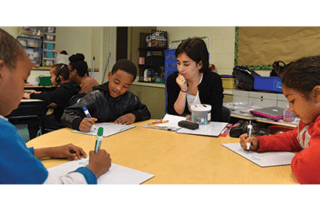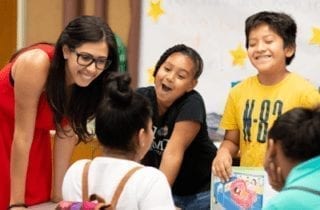In this edWebinar, the presenters will challenge participants to see beyond substituting print with PDF text and open doors to engaging interactive reading adventures for learners of all abilities and ages.
Join this edWebinar to learn about the foundational reading skills that are critical for reading development and review the science behind these skills.
Join this edWebinar to discover where to go to understand what science tells us about reading instruction and get inspired to motivate others around you.
This edWebinar will give insights to the science of reading, components of structured literacy, and strategies for implementing a structured literacy program.
In this edWebinar, Dr. Gene Kerns will put these statements to the test, sharing research-based insights that challenge three common myths about nonfiction reading.
As the importance and benefits of social-emotional learning (SEL) have become more widely recognized, many teachers have struggled to combine this type of learning with their required curriculum. A recent edWebinar led by Bobbi Bear, Director of Customer Advocacy for Achieve3000, identified effective ways to integrate SEL with reading instruction, through classroom conversations about nonfiction and fiction texts.
Learn the benefits associated with the effective usage of large print from the perspectives of students, teachers, librarians, and administrators, including relationships with academic outcomes, as well as a regular print comparison.
In this edWebinar, Dr. Rob Furman will give insight into how you can engage young readers in today’s digital world.
There are four lies/misconceptions about struggling readers that have become embedded in school systems, said Terrie Noland, Vice President of Educator Initiatives at Learning Ally during a recent edWebinar, “School leaders are just following along and are starting to believe them.” These misconceptions are having a detrimental impact on struggling readers, and school leaders need to set the tone and build a school culture where best practices and evidence-based research are shared to create a system of support for all readers.
This edWebinar shares dynamic new strategies for helping our students “tame the wild text” all throughout the year and master all the new ways we read.











